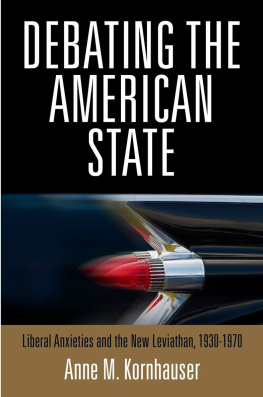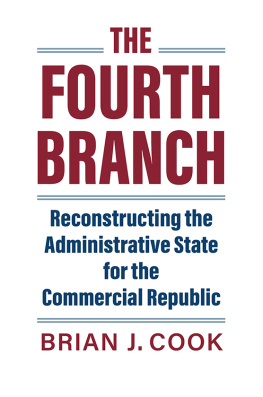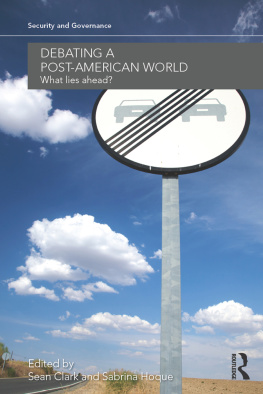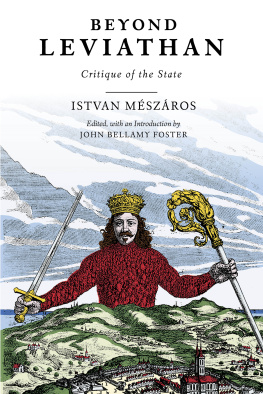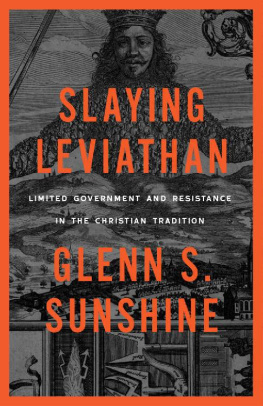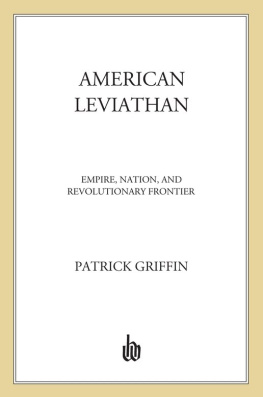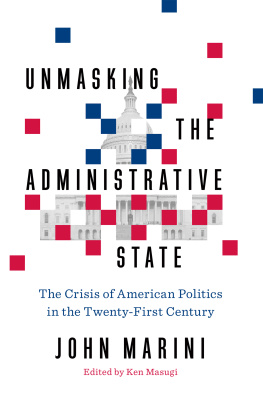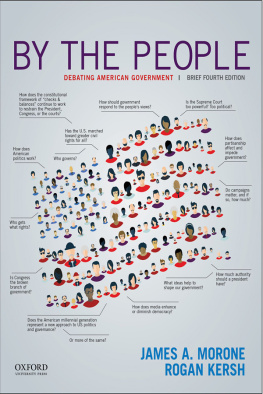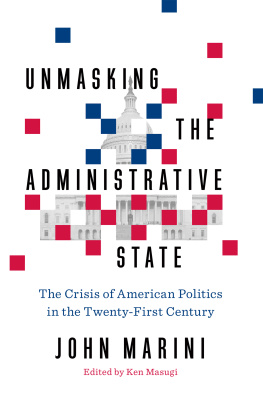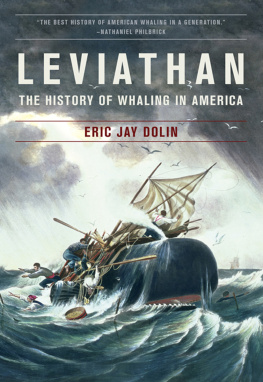Debating the American State
Debating the American State

Liberal Anxieties and the New Leviathan, 19301970
Anne M. Kornhauser

Copyright 2015 University of Pennsylvania Press
All rights reserved.
Except for brief quotations used for purposes of review or scholarly citation, none of this book may be reproduced in any form by any means without written permission from the publisher.
Published by
University of Pennsylvania Press
Philadelphia, Pennsylvania 19104-4112
www.upenn.edu/pennpress
Printed in the United States of America
on acid-free paper
1 3 5 7 9 10 8 6 4 2
Library of Congress Cataloging-in-Publication Data
Kornhauser, Anne M.
Debating the American state : liberal anxieties and the new leviathan, 19301970 / Anne M. Kornhauser. 1st ed.
p. cm.
Includes bibliographical references and index.
ISBN 978-0-8122-4687-2 (hardcover : alk. paper)
1. LiberalismUnited StatesHistory20th century. 2. United StatesPolitics and government20th century. I. Title.
JC574.2.U6K67 2015
320.97301dc23
2014029611
In memory of my parents
Ruth Rosner Kornhauser and William Kornhauser
Contents

Introduction
The New Deal era left behind a host of political, institutional, and economic legacies. Among the most familiar are the realignment of the two major parties into a liberal Democratic Party and a conservative Republican Party, a compensatory social services regime, and a commitment to use fiscal and monetary policy to manipulate the economy. Just as important, but less often recognized, the New Deal bequeathed to the United States a new type of state: the administrative state. New Dealers took the administrative seeds planted over the previous several decades of state building and nourished them into a full-blown bureaucratic machine, a leviathan, as it was often called.
The frequent references to the biblical sea monster Leviathan during the thirties and forties are telling. They traversed the political field and were rarely pejorative.
As a result of the crisis conditions in which it grew up and the internal contradictions of pouring the new wine of national bureaucracy into the old skin of constitutional democracy, the administrative state was from the outset beset by concerns about its legitimacy. This book is about those concerns and the intellectuals who first expressed them most thoughtfully and dispassionately: liberals themselves. Focusing on a group of sympathetic but critical intellectuals, it explores the little-discussed but tangible discomfort on the part of liberal thinkers with the very state conceived and built in their name. Although often masked by the rapid pace of reform and emergency politics, the core debates over the modern American state can be discerned in the writings of a wide-ranging cast of liberal-minded intellectuals in the middle decades of the twentieth century. These American social scientists, German migr legal academics, and the philosopher John Rawls were sympathetic to the New Deals statist liberal project but troubled by some of its political, legal, and ethical ramifications. These included an increasing reliance on extralegal measures and non-representative, undemocratic political institutions, and the turn away from ethical principles to justify state action.
These critical liberal thinkers reveal the complexity of the conceptual and political struggles within modern American liberalism, in particular liberals tentative relationship with their own state. Liberalism, they showed, failed to come to terms with the implications of bureaucratic governance and, as a result, to produce a principled legitimating theory for the administrative state.right, at this moment or that. Instead, since the 1930s, American statist liberalism has rested on shaky conceptual and political foundations, and the reasons for this are internal to liberalism as much as they are the result of external forces.
It is not generally recognized that the major tensions within the statist liberal project were identified from its birth and by its supporters. Rather, we have come to associate critiques of bureaucracy and condemnations of big government with conservatism or radical activists of the 1960s. However, the interventionist state from the outset has produced critics from across the political landscape. The more moderate but critical voices at issue here have tended to be drowned out by a discourse about the American state that has become increasingly bipolar: liberalism and the Democratic Party as defenders of a bureaucratized, interventionist state versus conservatism and the Republican Party as the guardians of freedom and law against the encroaching bureaucracy. This discourse has obscured the fact that the leviathan state, born in crisis and raised by technocrats, was never endowed with a principled rationale by the liberals who supported it.
This is not a story about liberal antistatism, however. Nor is it one about the success of statist liberalism in overcoming objections to the new mode of governance ushered in by the New Deal. A statist liberalism continued to prevail even in the face of an increasingly totalitarian threat. The national security state, organized administratively, was not an exception to but an extension of the New Deal state, directed, to be sure, toward very different ends.
The statist liberalism with which the sympathetic critics grappled embraced a centralized interventionist state whose main domestic functions were regulatory and compensatory. It generally abided as well a more repressive national security state, which was prefigured in World War II and fully developed during the immediate postwar years. Indeed, the national security state ought not to be seen as the apotheosis of the administrative state. Executive government, extralegal political activity, and a distrust of the democratic process are not one thing when the state engages in
Sympathetic critics of statist liberalism evinced three distinct but overlapping tensions that characterized liberal apprehensions about administrative hegemony. The first involved the friction between the hierarchical and unelected bureaucratic state and the ideal of majoritarian democracy, as expressed in some form of consent, whether through direct participation or genuine representation. This critique was taken up in the 1930s when administrative governance became hegemonic in the federal government and democracy seemed under threat. The second entailed the problematic place of the rule of law within an administrative regime. Legalism became the focus of attention during World War II, when concerns about a democratic deficit became muffled by military mobilization and patriotic fervor. Leading this debate was a group of German migr legalists who noted the threat to the rule of law in both democratic and totalitarian states that were organized bureaucratically. Germany became central to this discussion because the Nazis maintained a pretense to legality and because fealty to the rule of law became an issue in the German occupation in which many of the migrs participated. The third involved the threats to individual autonomy and equality posed by an expert-driven, technocratic form of governance. Here the most important interlocutor was John Rawls, who began his project of legitimating the administrative state in the late 1940s while a graduate student in philosophy at Princeton. Rawls, who has only recently garnered significant historical attention, focused on the individual as the main arbiter of right in a modern state and the requisites for maintaining autonomy in a hierarchical, unelected bureaucracy. For these thinkers, the administrative state brought with it a level of bureaucracy that threatened popular sovereignty, a level of emergency rule that jeopardized the legalistic principles that constrained arbitrary state action and protected the less powerful, and a level of instrumentalism that detracted from the more vital objectives of individual autonomy and a just outcome for all.
Next page
